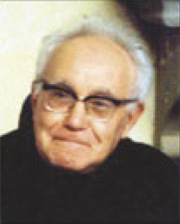 https://www.deepl.com/
https://www.deepl.com/God communicated to himself in relation to man in the Lord Jesus. During his mortal life, Jesus was still extraneous to men, but in the gift of his Spirit he really made himself present. His presence is no longer conditioned by time and space; it is time, space, people, and all things that come into contact with him. He is the new creation that conditions everything and is not subject to anybody, the new world of God. It is God who gives Himself, who communicates Himself to men in the gift of His Spirit.
In the gift of the Spirit, he enters into us and we into Him, and we become one with Him. If presence implied some strangeness, it would no longer be presence. It invests you, fills you, it does not identify with you because it transcends you, it embraces you. It is not understood by space and time; every time, every place is in relationship with it.
It is not outside of you, on the contrary it fills your own soul, in some way you yourself become the presence, and it becomes you. Until you are still transformed into her, how could a real presence be for you? Christ is really present if you are in Him, if you yourself are the Christ. For this reason the definitive real presence is the "Christus totus", redeemed humanity.
The very presence of the Eucharist is not yet definitive, perfect, but is ordered to what the future Church will be.The presence is realized in us because in the Eucharist the Christ is for us. According to ancient theologians the presence of Christ in the Eucharist is a presence in the mystery, the real presence is the Christians. The presence in the mystery is ordered to the real presence that we are.
As long as He is present in the mystery He is not yet fully present for us. Christ is still distinct and separated from us, he remains extraneous in some way to men: thus, for those who do not have faith, the real presence of Christ is inaccessible as that of God. Those who do not believe cannot establish a relationship with the presence.
God truly, in his immensity, fills everything, he is intimate to everything, but his presence is not real because creatures are found as if outside of him. He fills them, but they do not enter into a relationship with the presence. God is in them, but they are not in Him. And yet one can say that the Eucharistic mystery is that of the real presence, because it supposes and realizes Christ's relationship with men, with his bride the Church. The mystery is not celebrated without the Church being present with it.
Presence thus presupposes distinction and perfect unity, it expresses in fact a relationship of absolute intimacy. The presence of Christ is the unity of Christus totus in the distinction of individuals. He is the real presence in which the Son and the mother, the spouse and the bride subsist. Personal distinction exists, in the unity of a single life, a single body, a single being, as Saint Paul repeatedly says in his letters and of which that to the Ephesians is a wonderful expression (Eph 4,-6). Before the gift of the Spirit, even the Son of man remained divided and alien to the humanity of Peter and John. They were like contiguous worlds, but one was not in the other. Now instead they are one, they are the real presence.
DIVO BARSOTTI
The presence of Christ
Foundation Editions
Divo Barsotti
pp. 147-149